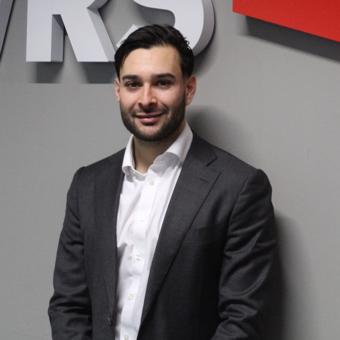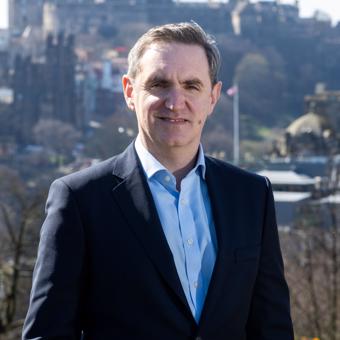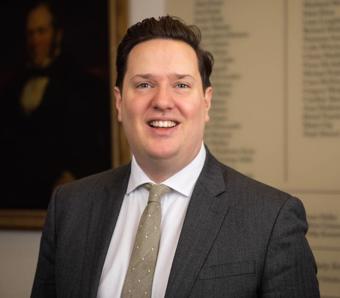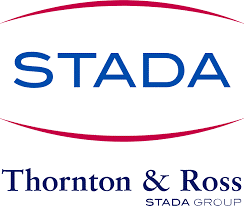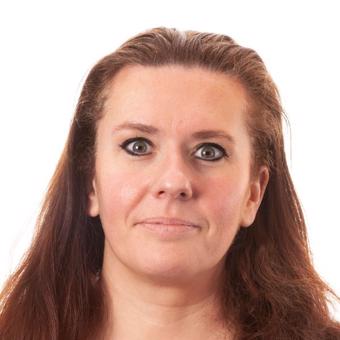Joanne Price, head of legal at Aston Villa FC
Joanne, firstly – can you tell readers of The Brief a bit about yourself and background?
Sure, I trained with Garretts in Birmingham, which was part of the Arthur Andersen legal network, and I was still a trainee when the Enron scandal closed Arthur Andersen down. Luckily the Garretts’ Birmingham partners were incredibly honourable and arranged for everyone from our office – so everyone from secretaries to partners - to move to Pinsent Masons in Birmingham, which is where I finished my training contract and subsequently qualified into the corporate department.
I was at Pinsents for three years post-qualification and while I was there I went on secondment to one of the firm’s clients. That’s when I decided that the breadth of in-house work was really what interested me. I could see that in-house lawyers tended to have a commercial background so to give myself the range of knowledge that in-house lawyers need, I moved to the business department of another Birmingham firm, Anthony Collins, where I still did transactional work but also commercial contracts, intellectual property and some charitable work. I was always keeping my eyes open for an interesting in-house role and three years later, I saw the role of in-house lawyer at Aston Villa advertised and that’s what led me to where I am today!
Premier League football is now one of the most high profile industries in the world and is perceived to be male dominated. Is that true and how do you find working as a senior female lawyer in it?
That perception is probably pretty accurate and, like in a lot of industries, there are still equality issues in football. Having said that, the women at Aston Villa head up arguably the most important departments at the club; for example, our club secretary is a woman and deals with everything to do with player administration and discipline; our head of consumer sales and head of sponsorships, hospitality & events are both women and respectively are responsible for filling Villa Park week in and week out and bringing in the club’s sponsors and partners. Finally, both of the Club’s lawyers are women; so, whilst it may be fair to say that women are outnumbered in football, at Aston Villa the roles we play are extremely important. And it isn’t just at Aston Villa; the heads of legal at Arsenal, Sunderland and Liverpool are all women as is the director of regulatory affairs at the Premier League, so we’re getting there slowly!
Football is now a truly global industry so how much of your work is international?
A growing amount. From a commercial perspective, the strength of the Premier League’s output and brand worldwide means that sponsors can be exposed to a vast audience and that makes Premier League clubs extremely attractive to international companies. Just this month, we’ve signed new sponsorship deals with several overseas companies and are in discussions with several more. From a football perspective, steps have been taken by the Premier League to increase the number of home grown players at clubs, but something like 60% of the players in the Premier League are still non-British and, again, just this transfer window, we’ve signed a Colombian player from a Spanish club and a Swiss player from another Spanish club, so the international element is clear to see.
How involved are you in player transfers and negotiations?
Very involved. I work closely with the club secretary and between us we negotiate the transfer agreement with the selling or buying club, the player’s contract and the agents’ arrangements. There can also be image rights agreements, private pension arrangements and third party ownership issues, so there are often some fairly complicated and technical issues to resolve.
How much of a problem is counterfeiting and what steps can a club like Aston Villa take to mitigate the problem?
It is a huge problem, linked in many ways to the increasing interest in football in emerging markets, although the Premier League and member clubs are putting a lot of effort into enforcement, to send the message that counterfeiting and IP abuse won’t be tolerated. The Premier League is great in that it organises infringement action for clubs as a group, so putting customs applications in place in relation to clubs’ trademarks, managing seizures with customs, carrying out investigations into the sale of counterfeit merchandise and even organising market and retailer visits as well as stadium visits on match-days, for the more blatant offenders.
Interestingly, a lot of our tip offs in relation to infringing products come from fans; which is fantastic as they clearly understand and appreciate that any money being spent on infringing products isn’t going into their club.
Sport is dominated by high value sponsorships and tie ins so are you heavily involved in those?
I’m very involved in all of the club’s commercial arrangements; we have a great commercial team here and I work very closely with them but any commercial deal almost inevitably ends up being finalised between two lawyers! I’ve worked on some fascinating things since I’ve been at Aston Villa, for example the arrangements between the club and Acorns Children’s Hospice, a local charity. We were the first Premier League club to have a charity as a shirt sponsor and that highlights again the power of the Premier League and how it can be used to do really good things; the club has generated £3 million for Acorns in our five year relationship with them. I’ve also negotiated contracts with our shirt sponsor, Dafabet, our kit manufacturer, Macron, as well as some really interesting negotiations with concert promoters to bring Take That and Bon Jovi concerts to Villa Park.
What do you think are the main benefits for a company that employs an in-house legal team?
The fact that you get legal advice which really works for your business, so an in-house legal team can really understand what the business is trying to achieve, how advice needs to be given and also understands the competing priorities within that business. There’s also the fact that lawyers are, by training, solution-driven and that is really key for a business like ours with a lot of creative thinkers, so we can translate their ideas into practice.
What advice would you give to someone looking to develop their career in-house and be successful as an in-house lawyer?
My advice would be to do a secondment first of all to see whether it is for you – for some lawyers it just doesn’t suit them. Then, once you’re in, it is crucial to get as close to the business as possible; ask questions, be interested in the answers, have an open door policy and be willing to get involved in anything, even if it doesn’t strictly fit into a neat “legal” box. You also have to be able to tailor your advice to the recipient and make it as brief as possible. You won’t last very long if you send lengthy advice notes with a range of options – anyone can do that. The skill of the in-house lawyer is working out which option will actually work for the business you’re in, especially as you’ll quite often end up being the actual decision maker.
Finally, we have to ask... are you a football fan yourself and are you a true ‘Villain’?
I get asked this all the time and when I joined the honest answer would have been no! But it’s an inevitable consequence of working here that you do get swept up in the excitement of it all, so the highs when we win and the lows when we don’t. I don’t think it would be helpful for me to be a die-hard fan, and it means I don’t get star-struck when speaking with players or managers and that I look at everything from a completely balanced perspective, unaffected by some of the emotion.
The variety of my job is incredible, but the thing I get the most pleasure from is being in the stadium on a match-day and knowing that I’ve played some part in everything taking place,– so the signing of players on the pitch, the arrangements with the police to supervise the match, the contract for the manufacture and sponsorship of the shirts they’re wearing, the contracts for the LED advertising running around on the pitch, right down to contracts for the Balti pie that gets sold at half-time.

